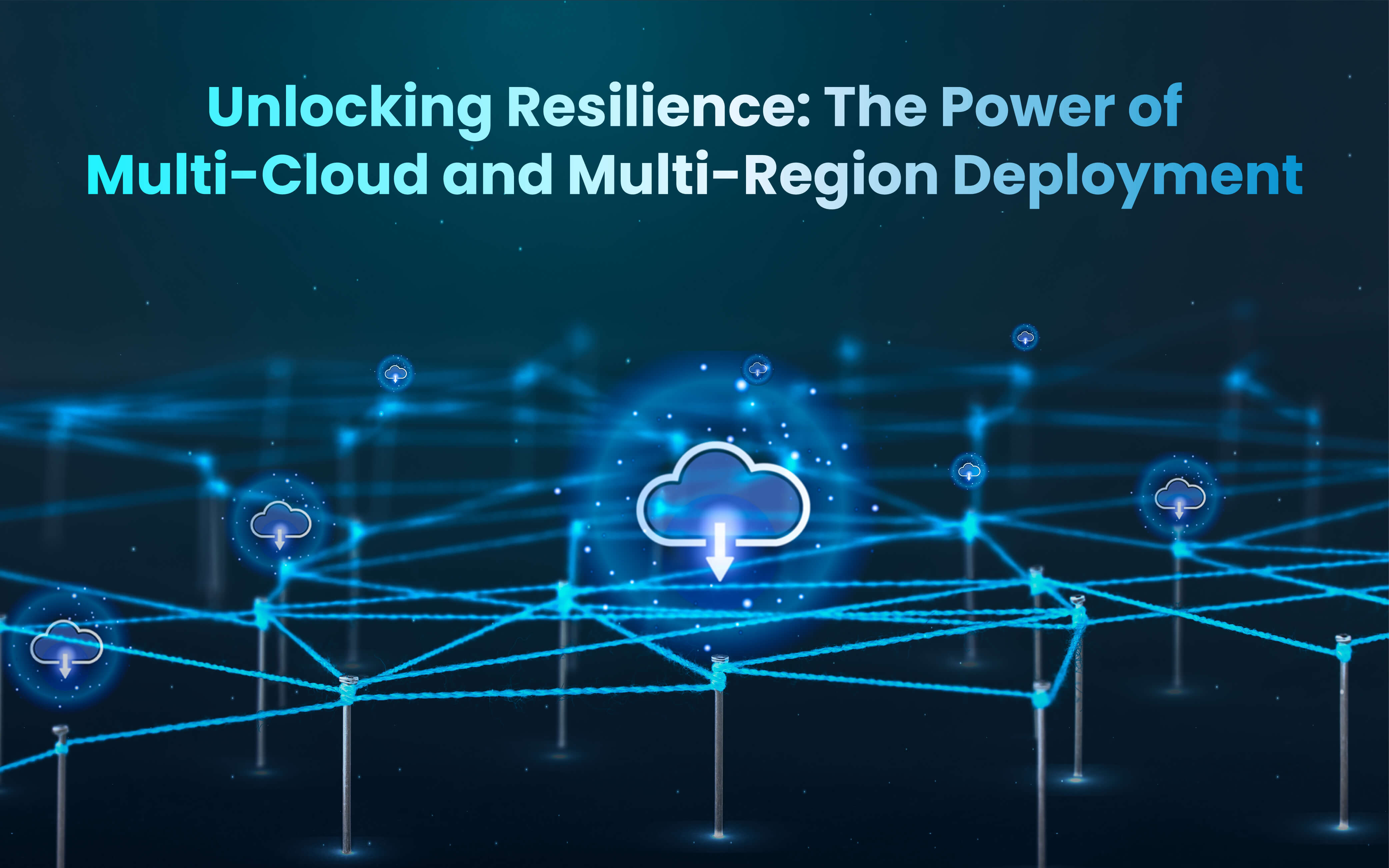Blogs
To know about all things Digitisation and Innovation read our blogs here.
Cloud and Infrstructure
Unlocking Resilience: The Power of Multi-Cloud and Multi-Region Deployment
SID Global Solutions
2 June 2023

Introduction
In today’s digital landscape, businesses face numerous technological challenges, and the need for resilience has become paramount. This guide explores the power of multi-cloud and multi-region deployment in achieving resilience, ensuring business continuity, and providing an uninterrupted user experience. By distributing workloads across multiple cloud service providers and geographic regions, organizations can unlock a range of benefits that enhance their ability to withstand disruptions, improve performance, and maintain data availability.
Also Read: Digital Engineering: A Strategic Imperative for Businesses in the Digital Age
Understanding Resilience in the Digital Age
The Rise of Digital Transformation
Digital transformation has become a driving force across industries, enabling organizations to innovate, streamline operations, and deliver exceptional customer experiences. This transformation involves leveraging cloud computing for its scalability, flexibility, and cost-efficiency. However, it also brings new challenges, including the need for resilient deployment strategies.
The Need for Resilience
Resilience is crucial for organizations to overcome potential risks associated with a single-cloud, single-region approach. These risks include service disruptions, data loss, and security breaches. By adopting a multi-cloud and multi-region deployment strategy, businesses can minimize the impact of these risks, ensuring continuity of operations and safeguarding critical data.
Multi-Cloud Deployment
What is Multi-Cloud Deployment?
Multi-cloud deployment involves using multiple cloud service providers simultaneously to distribute workloads and applications. This approach allows organizations to leverage the unique strengths and features of different providers, avoiding vendor lock-in and maximizing flexibility.
Advantages of Multi-Cloud Deployment
Multi-cloud deployment offers several benefits for resilience. One key advantage is improved redundancy, where organizations can replicate their data and applications across multiple cloud providers. This redundancy ensures that even if one provider experiences downtime or service disruptions, operations can seamlessly transition to another provider. Multi-cloud deployment also enables organizations to optimize performance by leveraging each provider’s specialized capabilities.
Challenges and Considerations
While multi-cloud deployment offers significant advantages, it also presents challenges. Organizations must consider factors such as interoperability, data transfer between clouds, and managing consistent governance and security policies across multiple providers. Proper planning, selecting compatible providers, implementing robust management tools, and establishing clear governance frameworks can help overcome these challenges.
Also Read: Best Practices for Successfully Implementing Microservices in Your Organization
Multi-Region Deployment
What is Multi-Region Deployment?
Multi-region deployment involves deploying applications and infrastructure across multiple geographic regions. By distributing resources across various regions, organizations can achieve geographic redundancy, improve data availability, and enhance user experiences.
Benefits of Multi-Region Deployment
Multi-region deployment provides organizations with enhanced data availability. By deploying applications closer to end-users in different regions, organizations can reduce latency, resulting in improved performance and user satisfaction. Moreover, multi-region deployment facilitates robust disaster recovery capabilities, as organizations can failover to alternate regions in the event of natural disasters or service disruptions.
Overcoming Challenges
While multi-region deployment offers significant benefits, it also presents challenges. Organizations need to address issues related to data consistency, latency management, and compliance with diverse regional regulations. Implementing strategies such as data replication mechanisms, leveraging content delivery networks (CDNs), and carefully considering regulatory requirements can help overcome these challenges.
Best Practices for Implementing Multi-Cloud and Multi-Region Deployment
Evaluating Cloud Providers
To implement a successful multi-cloud and multi-region deployment strategy, organizations must carefully evaluate and select compatible cloud providers. Factors to consider include reliability, security measures, scalability, support, and avoiding vendor lock-in.
Designing for Resilience
Designing a resilient architecture is crucial for multi-cloud and multi-region deployment. Key considerations include load balancing, data replication, fault tolerance, and ensuring high availability. Organizations should design their architecture to withstand failures and seamlessly scale resources as needed.
Managing and Monitoring Deployments
Managing and monitoring a multi-cloud and multi-region deployment requires robust tools and practices. Centralized control, automation, and proactive monitoring are essential to ensure operational efficiency, security, and compliance across the infrastructure.
Security and Compliance Considerations
Security and compliance are critical aspects of multi-cloud and multi-region deployment. Organizations should implement proper security measures such as encryption, access controls, and vulnerability management. Additionally, understanding regional compliance requirements and implementing appropriate measures ensures adherence to relevant regulations.









